Social Safety of Students at CZU
At the CZU, we don´t tolerate any forms of unacceptable behaviour, such as all forms of discrimination, sexual harassment, or bullying. This applies to behaviour amongst students themselves or students and employees. We strive to offer a safe environment for everybody, and we ask everyone to observe the Code of Ethics of CZU. Social safety at our University is critical for creating an inclusive and supportive learning environment.

If you become a victim or witness of any kind of unacceptable behaviour, there are ways to protect yourself or others. Here are some of the main aspects of social safety, along with examples of discrimination, bullying, and unacceptable behaviour that is not tolerated at our University:
Discrimination can be based on characteristics such as race, gender,
sexual orientation, disability, religion,
etc..
Racial Discrimination:
Discrimination against any individual on the basis of their skin color,
race or ethnic origin expressed for example through racial prejudice, hostility, stereotypes, or exclusion
Gender Discrimination:
Unequal or unfair treatment or exclusion based on gender. Identity or expression
Sexual Orientation Discrimination:
Discrimination based on a person’s sex, sexual orientation, gender
identity, expressed for example through
derogatory comments, unequal treatment, exclusion, etc..
Bullying and harassment can occur in various forms, such as verbal,
physical, or cyberbullying.
Verbal Harassment:
Name-calling, insults or offensive comments tagetted at an individual or a group
Cyberbullying:
Harassment through online platforms, including social media, emails, or
messaging apps.
Sexual Harassment:
Behaviour of a sexual nature that create a hostile environment, such as:
- Unwanted Sexual Advances:
Unwelcome physical advances, such as touching, hugging, or kissing, as well
as persistent sexual comments or requests for sexual favours
- Sexual Comments and Innuendos:
Inappropriate sexual comments, jokes, or innuendos that create a hostile or
uncomfortable environment
- Online Harassment:
Sending explicit or unsolicited sexual messages, photos, or videos through
social media, emails, or other digital platforms
- Quid Pro Quo Harassment:
A person in authority, such as a professor, offering academic benefits
(e.g., better grades) in exchange for sexual favours
- Sexual Assault:
Non-consensual sexual contact, including rape or attempted rape, is a
criminal offence and a severe form of sexual harassment
- Stalking:
Unwanted and obsessive pursuit, often through online and offline means,
that can lead to a feeling of constant threat.
Hate speech and hate crimes targeted at specific groups based on their characteristics.
Cheating, plagiarism, and other forms of dishonest behaviour creating an unfair and unsafe environment for all students.
Subtle, often unintentional acts of discrimination that convey negative stereotypes or biases related to race, gender, disability, etc.
Keep Your Eyes Open – Take Care of Each Other
It is important to help each other and to be attentive to others. Please talk to your friend or a colleague when you notice they are not feeling well or when you feel they may need help. It can be nothing serious, but it does not harm to ask and let them know you do care.

Victim Behaviour Changes
- Victims’ academic performance may suffer due to the stress and emotional toll of harassment, resulting in missed classes, assignments, exams, or even quitting their studies.
- Stress and anxiety resulting from sexual harassment can have a profound impact on health, such as on the quality of sleep and our overall well-being.
- Some victims may withdraw from social activities and relationships, feeling isolated and unsupported.
Ways to respond to the above-mentioned inappropriate forms of behaviour at CZU
- Talk to a friend or someone you trust in campus.
- Contact the Department Head, a programme guarantor, a course teacher etc. about it
- Book a consultation with our Psychologist.
- Submit a report regarding unwanted behaviour to the CZU Ethics Committee (For more information, please refer to the Code of Ethics and the Rules of Procedures of the Ethics Committee.)
HELP LINE Phone: 116 111 non- stop
Mail: pomoc@linkabezpeci.czOthers:
- Persefona –domestic and sexual violence, including victims ‘assistance
- Bílý kruh bezpečí (“White Circle of Safety”) – helps victims of crime, including sexual violence
- proFem – helps victims of sexual violence, organizes educational events
Psychosocial Support Contacts outside the CZU
* In accordance with the EU Directive, CZU provides the possibility to submit a report, for which it has set up a reporting system that guarantees anonymity and security, so you do not have to worry about an unwelcome reaction or sanction. Your report will be sent to the appropriate person who can really help.
You can make your report without stress, with time to think about it and with the possibility to add attachments. The system allows you to follow up anonymously, proactively address and monitor the status of your report. However, please respond to the person trying to resolve your submission in this application: without this interaction and without your responses, resolution becomes extremely difficult.
The report must always state the substance of what happened and must be true.
Whistleblowers’ anonymity is guaranteed by the fact that you do not need to create an account, yet we will be able to respond to your anonymous submission easily and proactively.
As the provider of the whistleblowing platform, neither CZU nor any third party has access to your data, which is stored on AWS. The system is secured using E2E encryption.
The First Vice-Rector and the Chancellor are the designated persons to investigate the report.

